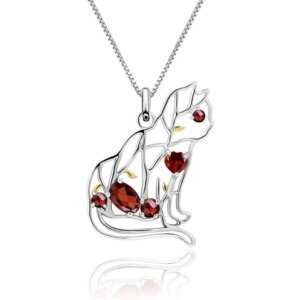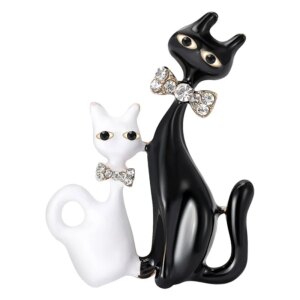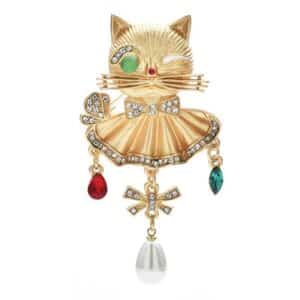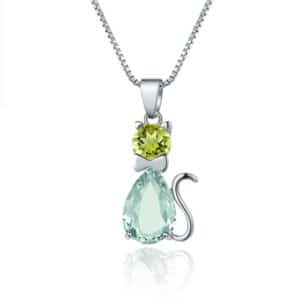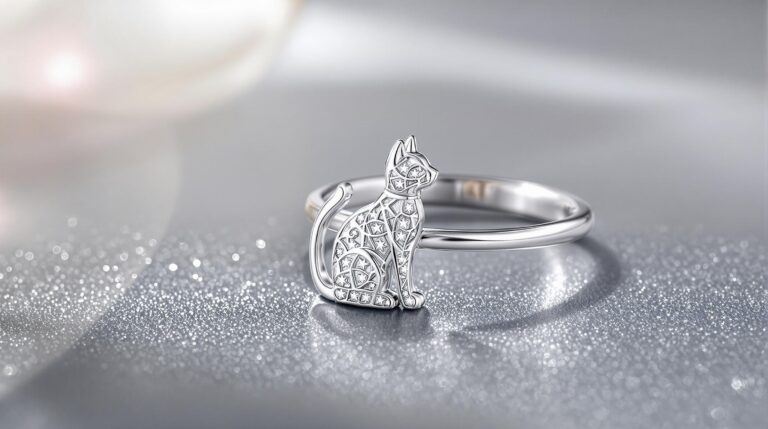Cats sneezing can be a sign of various health issues, from minor irritations to more serious conditions. At Cat Karma Creations, we understand the importance of keeping your feline friend healthy and happy. This article will explore the common causes of cat sneezing, how to identify symptoms, and the best treatment options to ensure your cat stays in top shape. Whether you’re dealing with a one-time sneeze or a persistent issue, this guide will provide valuable insights and practical tips to help you manage your cat’s health effectively.
Common Causes of Cats Sneezing
Understanding the common causes of cats sneezing is crucial for ensuring your pet’s well-being. Here are some of the most frequent reasons behind this symptom:
Viral Infections
Viral infections are a significant cause of cat sneezing. Common viruses like Feline Herpesvirus-1 (FHV-1) and Feline Calicivirus (FCV) can lead to upper respiratory infections, which often result in sneezing. These viruses can cause additional symptoms such as fever, eye discharge, and lethargy. Vaccinations and avoiding exposure to infected cats are the best preventive measures. If you have any concerns, feel free to reach out to us at info@catkarmacreations.com for advice.
Bacterial Infections
Bacterial infections, particularly those caused by bacteria like Bordetella and Chlamydia, can also lead to cat sneezing. These infections often present with symptoms like sneezing, coughing, and nasal discharge. Treatment typically involves antibiotics and supportive care to alleviate symptoms and prevent the spread of the infection. For more information on our cat-themed jewelry and gifts, visit our All Jewelry page.
Allergies
Allergies are another common cause of cats sneezing. Pollen, dust, and mold are frequent allergens that can trigger sneezing, itching, and watery eyes in cats. Identifying and avoiding these allergens is key to managing symptoms. Antihistamines and allergy shots may also be recommended by your veterinarian to provide relief. Our Nature Inspired collection offers beautiful pieces that reflect the beauty of the natural world.
Environmental Irritants
Environmental irritants, such as household chemicals, smoke, and perfumes, can irritate a cat’s respiratory system and cause sneezing. Creating a clean and hypoallergenic living environment is essential for preventing these issues. Using air purifiers and maintaining a clean home can significantly reduce the risk of sneezing caused by environmental irritants. For more tips on creating a cat-friendly home, follow us on Facebook.
Dental Issues
Dental issues, including tooth decay and gum disease, can sometimes lead to cat sneezing. Infections in the mouth can spread to the nasal passages, causing inflammation and sneezing. Regular dental check-ups and maintaining good oral hygiene can help prevent these issues and keep your cat healthy. Our Sterling Silver collection includes stunning pieces that make perfect gifts for cat lovers.
Foreign Objects
Foreign objects, such as grass, seeds, or small toys, can become lodged in a cat’s nasal passages, causing irritation and sneezing. If you suspect a foreign object is the cause, it’s important to seek veterinary care promptly to have it safely removed and prevent further complications. For custom orders or inquiries, please contact us at (800) 343-1604.
Symptoms of Cats Sneezing
Recognizing the symptoms that often accompany cat sneezing is essential for determining the underlying cause and seeking appropriate treatment. Here are some common symptoms to watch for:
Runny Nose
A runny nose is a frequent symptom that accompanies cat sneezing. This can be a sign of an upper respiratory infection, allergies, or environmental irritants. Keeping the area around your cat’s nose clean and consulting a veterinarian if the discharge is persistent or accompanied by other symptoms can help ensure your cat’s health. For more information on our cat-themed gifts, visit our Cat Themed Jewelry page.
Watery Eyes
Watery eyes, or epiphora, often occur alongside cat sneezing. This can be a sign of an upper respiratory infection, allergies, or irritants in the environment. If the discharge is clear and mild, it might resolve on its own, but if it persists or is accompanied by other symptoms, a vet visit is recommended. Follow us on Instagram for more tips and updates.
Lethargy
Lethargy, or a lack of energy, can be a sign that your cat is feeling unwell. If your cat is sneezing and showing signs of lethargy, it could be a symptom of an underlying health issue such as an infection or allergies. Monitoring your cat’s behavior and seeking veterinary care if necessary can help ensure they receive the appropriate treatment. For more information on our charitable contributions, visit our website.
Loss of Appetite
A loss of appetite is another symptom that can accompany cat sneezing. If your cat is not eating normally, it could be a sign of an infection, dental issues, or other health problems. Encouraging your cat to eat and maintaining regular vet check-ups can help prevent and address this issue. For more information on our custom designs, contact us at sales@catkarmacreations.com.
Fever
A fever is a sign that your cat’s body is fighting an infection. If your cat is sneezing and has a fever, it’s important to monitor their temperature and seek veterinary care. A fever can indicate a more serious condition that requires prompt treatment. For more information on our yoga-inspired items, visit our Cat Pose Yoga Block page.
Discharge
Discharge from the nose or eyes can be a symptom of an upper respiratory infection, allergies, or environmental irritants. Keeping the area around your cat’s nose and eyes clean and consulting a veterinarian if the discharge is persistent or accompanied by other symptoms can help ensure your cat’s health. For more information on our elegant cat brooches, visit our Elegant Cat Brooch page.
Treatment Options for Cats Sneezing
Managing cat sneezing involves a combination of medical treatment, home remedies, and supportive care. Here are some effective treatment options:
Medications
Medications are often necessary to treat the underlying causes of cat sneezing. Antiviral medications, antibiotics, and antihistamines can help alleviate symptoms and prevent further complications. Consult your veterinarian for the appropriate medication and dosage for your cat. For more information on our quality materials, visit our website.
Home Remedies
Home remedies can provide relief for cats experiencing mild symptoms. Using a humidifier, steam therapy, and herbal teas can help alleviate congestion and soothe your cat’s respiratory system. For example, a few minutes in a steamy bathroom can help clear nasal passages, and herbal teas like chamomile can have a calming effect. For more information on our exclusive designs, visit our Stylish Cat Lover Necklaces page.
Natural Solutions
Natural solutions, such as herbal remedies and supplements, can also be beneficial for cats sneezing. Herbs like echinacea and goldenseal can support the immune system, while supplements like vitamin C and omega-3 fatty acids can help reduce inflammation and boost overall health. Always consult your veterinarian before introducing new supplements or remedies. For more information on our handcrafted pieces, visit our Beautiful Handmade Sterling Silver Cat Pendant page.
Supportive Care
Supportive care is essential for helping your cat recover from sneezing. This includes maintaining a clean and comfortable environment, providing plenty of fresh water, and ensuring your cat has a quiet place to rest. Regularly cleaning your cat’s living area and using air purifiers can also help reduce the risk of respiratory issues. For more information on our global inspiration, visit our website.
Preventing Cats Sneezing
Preventing cat sneezing involves creating a safe and healthy living environment and maintaining regular veterinary care. Here are some effective preventive measures:
Creating a Safe Environment
Creating a safe environment for your cat is crucial for preventing sneezing. This includes using hypoallergenic products, maintaining a clean home, and avoiding exposure to irritants like smoke and strong perfumes. Regularly cleaning your cat’s living area and using air purifiers can help reduce the risk of respiratory issues. For more information on our custom orders, contact us at admin@catkarmacreations.com.
Avoiding Allergens
Avoiding allergens is essential for managing cat sneezing. Identifying and avoiding common allergens like pollen, dust, and mold can help prevent symptoms. Regularly cleaning your home, using air purifiers, and maintaining a hypoallergenic living environment can significantly reduce the risk of sneezing caused by allergies. For more information on our charitable contributions, visit our website.
Regular Vet Check-ups
Regular veterinary check-ups are important for maintaining your cat’s health and preventing sneezing. Your veterinarian can identify and treat potential health issues before they become more serious. Regular check-ups can also help ensure your cat is up-to-date on vaccinations and preventive care. For more information on our yoga-inspired items, visit our Cat Pose Yoga Block page.
Maintaining Oral Health
Maintaining good oral health is crucial for preventing cat sneezing. Regular dental check-ups and maintaining good oral hygiene can help prevent dental issues that can lead to sneezing. Brushing your cat’s teeth, providing dental treats, and using oral care products can help keep your cat’s mouth healthy and reduce the risk of sneezing. For more information on our elegant cat brooches, visit our Elegant Cat Brooch page.
Comparison Table
Here is a comparison of the common causes of cat sneezing, their symptoms, treatment options, and preventive measures:
| Feature | Viral Infections | Bacterial Infections | Allergies | Environmental Irritants |
|---|---|---|---|---|
| Common Causes | Viruses like FHV-1 and FCV | Bacteria like Bordetella and Chlamydia | Pollen, dust, and mold | Household chemicals, smoke, and perfumes |
| Symptoms | Sneezing, fever, and eye discharge | Sneezing, coughing, and nasal discharge | Sneezing, itching, and watery eyes | Sneezing, coughing, and respiratory distress |
| Treatment | Antiviral medications and supportive care | Antibiotics and supportive care | Antihistamines and allergy shots | Air purifiers and removing irritants |
| Prevention | Vaccinations and avoiding exposure | Good hygiene and regular vet check-ups | Identifying and avoiding allergens | Using hypoallergenic products and maintaining a clean home |
Popular Quote
“Cats are connoisseurs of comfort.” – Jim Davis
Statistical Fact
According to the American Veterinary Medical Association, approximately 15% of cats suffer from chronic respiratory issues, which can often manifest as sneezing. This statistic underscores the importance of regular veterinary care and a healthy living environment for your feline friend. Source: American Veterinary Medical Association
Three Tips for Managing Cats Sneezing
- Regular Vet Visits: Ensure your cat has regular veterinary check-ups to identify and treat any underlying health issues early. This can prevent minor issues from becoming more serious.
- Keep a Clean Home: Maintain a clean and hypoallergenic living environment by regularly cleaning your home, using air purifiers, and avoiding irritants like smoke and strong perfumes.
- Supportive Care: Provide supportive care by maintaining a clean and comfortable environment, ensuring your cat has plenty of fresh water, and giving them a quiet place to rest. This can help alleviate symptoms and speed up recovery.
Popular Questions
- What are the most common causes of cat sneezing? The most common causes include viral infections, bacterial infections, allergies, environmental irritants, dental issues, and foreign objects.
- How can I tell if my cat’s sneezing is serious? If your cat’s sneezing is accompanied by other symptoms like fever, lethargy, loss of appetite, or persistent discharge, it’s important to consult a veterinarian.
- Can I treat my cat’s sneezing at home? Mild symptoms can often be managed with home remedies like using a humidifier, steam therapy, and herbal teas. However, it’s always best to consult a veterinarian for a proper diagnosis and treatment plan.
- How can I prevent my cat from sneezing? Preventing cat sneezing involves creating a safe and healthy living environment, avoiding allergens, maintaining regular vet check-ups, and keeping good oral hygiene.
Final Thoughts About Cats Sneezing
Cats sneezing can be a concerning issue, but with the right knowledge and care, you can help your feline friend feel better. By understanding the common causes, recognizing symptoms, and exploring treatment options, you can ensure your cat remains healthy and happy. If you have any concerns, don’t hesitate to contact your veterinarian for professional advice and support. For more information on our unique and uplifting jewelry, visit our website or follow us on Pinterest. We are here to help and support you every step of the way.

